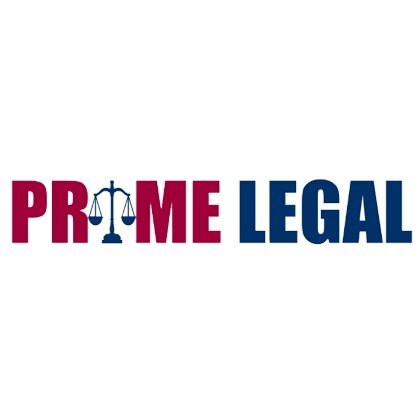Best Corporate & Commercial Lawyers in Nepal
Share your needs with us, get contacted by law firms.
Free. Takes 2 min.
Or refine your search by selecting a city:
List of the best lawyers in Nepal
About Corporate & Commercial Law in Nepal
Corporate and Commercial law in Nepal covers the legal rules and practices that govern businesses, companies, trade, commerce, and related financial activities. These laws set the foundation for the formation, operation, regulation, and dissolution of companies and regulate commercial transactions, contracts, mergers, acquisitions, joint ventures, and foreign investment. The primary aim is to ensure fair, transparent, and efficient business operations that foster economic growth and protect the interests of all stakeholders involved. Nepal’s business environment is increasingly influenced by global standards as the country modernizes its commercial legislation to attract domestic and foreign investment.
Why You May Need a Lawyer
Legal representation or consultation can help individuals and businesses navigate the complexities of Corporate and Commercial law in Nepal. Some common situations where you may require legal help include:
- Starting or registering a new company or business entity
- Drafting, reviewing, or negotiating contracts and commercial agreements
- Mergers, acquisitions, and restructuring of companies
- Foreign direct investment processes and compliance
- Resolving shareholder or partnership disputes
- Complying with government regulations or licensing requirements
- Understanding tax implications and legal liabilities
- Protecting intellectual property rights
- Handling bankruptcy, liquidation, or winding up of companies
- Pursuing or defending against commercial litigation and arbitration
A lawyer can provide tailored advice, draft precise documents, represent your interests in negotiations or disputes, and help avoid costly mistakes that may arise from misunderstanding the law.
Local Laws Overview
Corporate and Commercial activities in Nepal are primarily governed by several key laws and regulations:
- Companies Act, 2063 (2006): Provides guidelines for company incorporation, management, corporate governance, shareholder rights, and mergers or dissolution processes.
- Foreign Investment and Technology Transfer Act (FITTA), 2019: Regulates foreign investment, transfer of technology, and ensures repatriation of profits.
- Contract Act, 2056 (2000): Governs the formation, execution, performance, and validity of contracts in Nepal.
- Bank and Financial Institution Act, 2073 (2017): Regulates banking and financial institutions and sets prudential standards for the sector.
- Industrial Enterprises Act, 2076 (2019): Outlines legal requirements for establishing and operating industries in Nepal.
- Intellectual Property Laws: Laws and regulations protecting trademarks, patents, industrial designs, and copyrights in Nepal.
- Labor Act, 2074 (2017): Addresses employment contracts and labor relations in commercial settings.
Compliance with these laws is mandatory for all businesses and non-compliance can result in fines, operational restrictions, or legal actions. Understanding the local regulatory landscape is crucial for the smooth and successful operation of any business in Nepal.
Frequently Asked Questions
What types of companies can be registered in Nepal?
The Companies Act allows registration of private limited, public limited, companies not distributing profit, and foreign companies. The right company structure depends on the number of investors, capital requirements, and the nature of the business.
What documents are required for company registration?
Typically, a memorandum of association, articles of association, copies of shareholders' identification, a consensus agreement (if any), and evidence of the registered address are required. Additional documents may be necessary depending on company type or sector.
How can foreign investors enter the Nepalese market?
Foreign investors must obtain approval from the relevant government authorities, mainly the Department of Industry, and comply with FITTA provisions. They may form joint ventures or wholly owned subsidiaries but need to meet minimum investment thresholds and sectoral restrictions.
What taxes are applicable to companies in Nepal?
Companies are subject to corporate income tax, value added tax (VAT), excise duties, customs duties (for import-export businesses), and other sector-specific taxes. The rates and scope differ according to business type and sector.
What is the process of dissolving a company in Nepal?
The process includes settling debts, notifying creditors, distributing remaining assets among shareholders, and formally de-registering with the Office of Company Registrar. Winding-up can be voluntary or court-ordered depending on circumstances.
How are commercial disputes resolved?
Most commercial disputes can be resolved through negotiation, mediation, or arbitration. If not resolved amicably, cases may be taken to the relevant court or arbitration tribunal as prescribed by contract or law.
What is the minimum capital requirement for company registration?
There is no fixed minimum capital for private limited companies, but specific sectors and public companies have legally mandated minimum capital requirements as specified by various regulatory authorities.
How is intellectual property protected in Nepal?
Intellectual property such as trademarks, patents, designs, and copyrights can be registered with the Department of Industry. Registration provides legal protection and the right to enforce your claims in case of infringement.
Do businesses need to renew their registration annually?
Yes, companies must submit annual returns and renew their registration by fulfilling government requirements, including the payment of renewal fees and the submission of financial statements.
Are there restrictions on foreign ownership in Nepalese companies?
While many sectors are open to foreign investment, some areas are restricted or require special approval. FITTA and sector-specific regulations outline where 100 percent foreign ownership is allowed and where joint ventures or local partnerships are required.
Additional Resources
If you need more information or assistance, the following organizations and bodies offer valuable resources and regulatory guidance:
- Office of the Company Registrar (OCR)
- Department of Industry (DOI)
- Ministry of Industry, Commerce and Supplies
- Federation of Nepalese Chambers of Commerce and Industry (FNCCI)
- Confederation of Nepalese Industries (CNI)
- Nepal Bar Association
- Intellectual Property Section, Department of Industry
These organizations can provide regulatory information, forms, guidelines, and in some cases, referrals to legal professionals specializing in Corporate and Commercial law.
Next Steps
If you need legal assistance in the field of Corporate and Commercial law:
- Identify your specific legal issue or business challenge
- Gather all relevant documents, contracts, and records
- Conduct initial research using governmental and professional resources
- Seek recommendations or review directories for experienced Corporate and Commercial lawyers in Nepal
- Schedule a consultation to discuss your case and explore your options
- Ensure your chosen lawyer understands your business needs and has experience with similar issues
- Follow their legal advice to address compliance, resolve disputes, or secure necessary services
Taking these steps will help protect your business interests, achieve efficient legal solutions, and avoid unnecessary risks in Nepal’s evolving corporate and commercial landscape.
Lawzana helps you find the best lawyers and law firms in Nepal through a curated and pre-screened list of qualified legal professionals. Our platform offers rankings and detailed profiles of attorneys and law firms, allowing you to compare based on practice areas, including Corporate & Commercial, experience, and client feedback.
Each profile includes a description of the firm's areas of practice, client reviews, team members and partners, year of establishment, spoken languages, office locations, contact information, social media presence, and any published articles or resources. Most firms on our platform speak English and are experienced in both local and international legal matters.
Get a quote from top-rated law firms in Nepal — quickly, securely, and without unnecessary hassle.
Disclaimer:
The information provided on this page is for general informational purposes only and does not constitute legal advice. While we strive to ensure the accuracy and relevance of the content, legal information may change over time, and interpretations of the law can vary. You should always consult with a qualified legal professional for advice specific to your situation.
We disclaim all liability for actions taken or not taken based on the content of this page. If you believe any information is incorrect or outdated, please contact us, and we will review and update it where appropriate.
Browse corporate & commercial law firms by service in Nepal
Nepal Attorneys in related practice areas.
Browse corporate & commercial law firms by city in Nepal
Refine your search by selecting a city.

















